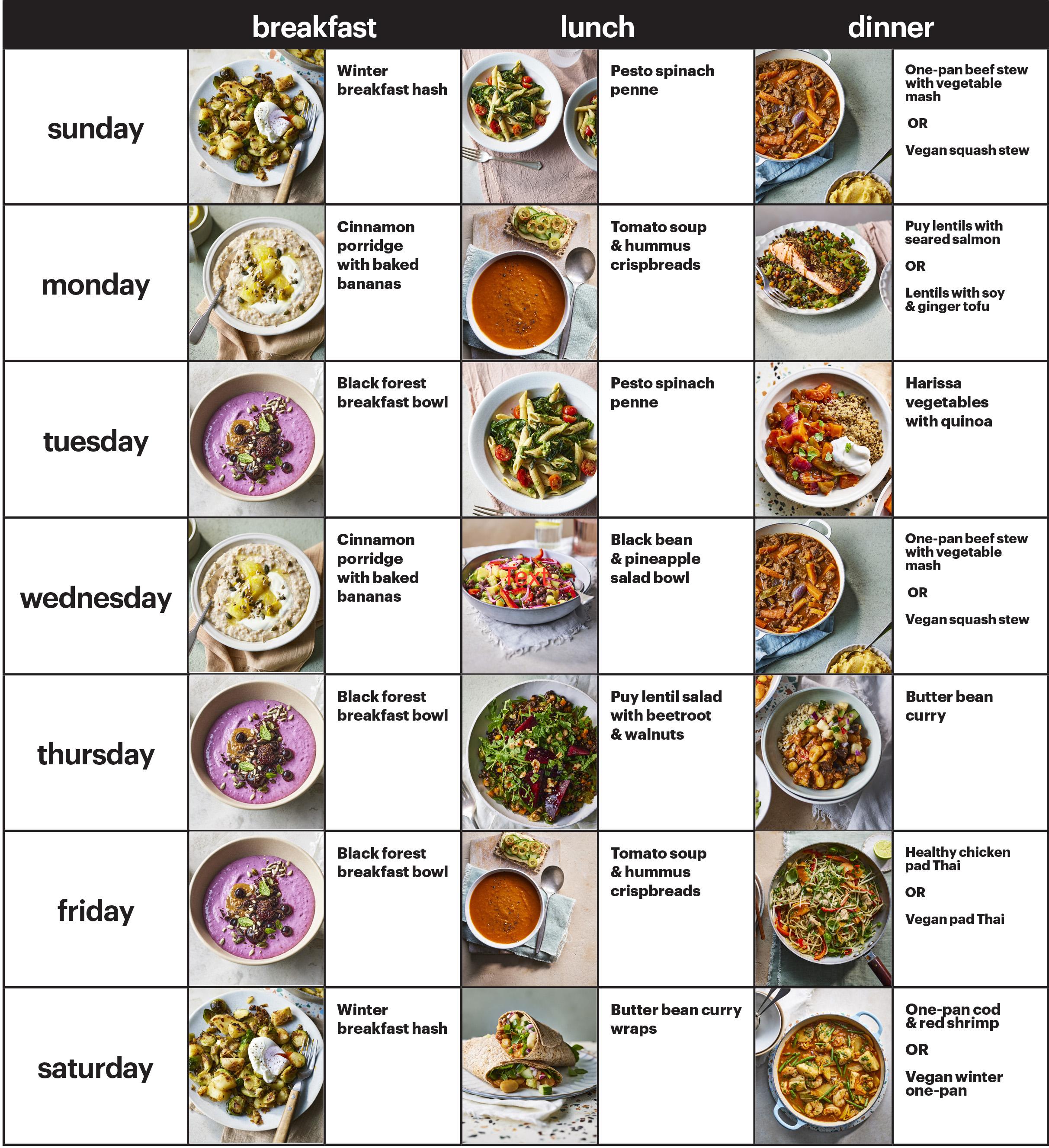Have you ever found yourself staring into the fridge late at night, wondering why the quick fix diet you tried didn’t quite deliver the results you hoped for? You’re not alone. Many of us grapple with the ups and downs of weight loss, often feeling overwhelmed by the endless array of diets out there. A low-carb diet might just be the fresh approach you’ve been seeking, offering a balance of satisfying meals while helping you shed those extra pounds. In this article, we’ll dive into the basics of low-carb eating, share practical tips to make it work for you, and explore some delicious meal ideas that won’t leave you feeling deprived. So, if you’re looking for relatable solutions and real strategies to tackle your weight loss goals, keep reading—there’s plenty of valuable information just ahead!

Understanding the Low Carb Diet: The Science Behind Weight Loss
Have you ever stared at a loaf of bread and felt it taunting you, whispering sweet nothings of carb-loaded temptation? You’re not alone! Many of us struggle with the allure of carbohydrates, but understanding the science behind low-carb diets can shine a light on the path to effective weight loss. When you cut down on carbs, your body enters a state called ketosis. In this state, it starts burning fat for fuel instead of carbohydrates. Think of it like switching from regular gas to premium; it takes a moment for the engine to adjust, but once it does, it runs smoother and more efficiently. Studies have shown that people on low-carb diets can shed pounds faster than those on traditional calorie-restricted diets. Curious why? It’s all about controlling your insulin levels and changing how your metabolism works.
Let’s dive a little deeper. When you consume carbohydrates, your body converts them into glucose, which raises your blood sugar. In turn, your body releases insulin to help cells absorb this sugar for energy. Over time, constant spikes in insulin levels can lead to fat storage and make it even harder to lose weight. But when you lower your carb intake, you reduce insulin levels, allowing your body to tap into its fat reserves instead. This shift not only helps with weight loss but also improves overall health markers like blood pressure and cholesterol. You might be wondering—I know I did—what does this look like in practice? It’s all about making some simple and delicious swaps:
- ✨ Swap out rice for cauliflower rice.
- ✨ Trade your traditional pasta for zucchini noodles.
- ✨ Embrace leafy greens over bread as a vessel for your sandwich fillings.
It might feel daunting at first, but experimenting with these alternatives can turn your meal prep into a fun challenge rather than a rigid routine. Plus, you’ll discover just how satisfying it can be to nourish your body with wholesome, low-carb foods. Support for your dietary journey can also be found in reputable resources such as this study, which outlines the effectiveness of ketogenic diets for weight loss. Armed with this knowledge, you’ll not only be more informed but also better equipped to make choices that align with your health goals.

Choosing the Right Foods: A Guide to Low Carb Eating
When it comes to low-carb eating, knowing what to put on your plate can transform your experience. Picture this: instead of reaching for a sandwich, why not indulge in a hearty salad topped with grilled chicken and a sprinkle of feta? Incorporating these vibrant vegetables and proteins not only nourishes your body but also keeps your taste buds excited. Think leafy greens, cruciferous veggies, and a splash of healthy fats like avocado or olive oil—these elements are key players in the low-carb game. And let’s not forget about creating balance; a blend of texture and flavor can make your meals not just healthy, but downright delicious.
One common misconception about low-carb diets is that they’re restrictive and boring. In reality, they’re an opportunity to explore an array of exciting foods! Ever tried a zucchini noodle stir-fry with a zesty peanut sauce? Or perhaps roasted cauliflower that could easily trick your palate into thinking it’s a warm, cheesy breadstick? By getting creative with substitutes, you can maintain your carb goals while discovering new favorites. Start by experimenting with meals you’ve already mastered—just swap out high-carb components for alternatives. If pasta is your comfort food, spiralized veggies or shirataki noodles can work wonders!
Remember, being mindful of portion sizes and ingredient quality matters just as much as what you’re eating. Focus on whole foods—think grass-fed meats, wild-caught fish, and colorful produce. They not only provide essential nutrients but can also help curb those cravings that often lead to snacking on processed foods high in sugar. And here’s a little tip: planning your meals for the week can drastically reduce the temptation to stray from your low-carb choices. Plus, having go-to recipes ensures you stay on track. If you’re looking for a solid resource, check out the low-carb recipes from organizations like the American Diabetes Association for inspiration and practical meal ideas.

Meal Planning Made Easy: How to Create a Low Carb Menu
When you think of meal planning, what comes to mind? Is it a daunting task filled with complicated recipes and endless grocery lists? It doesn’t have to be! Creating a low-carb menu can actually be a rewarding process that not only simplifies your week but also brings flavor and variety to your plate. Start by focusing on whole foods, such as lean proteins, fresh vegetables, and healthy fats. These are not only low in carbs but also packed with essential nutrients. Imagine starting your day with a fluffy omelet loaded with spinach and feta, or enjoying a zesty grilled chicken salad for lunch, topped with avocado and a sprinkle of nuts. Each bite is a step towards measurable goals, like improved energy and potential weight loss.
One of the biggest misconceptions about a low-carb diet is that it limits your culinary options. In reality, this is the perfect time to unleash your inner chef! Tools like meal prep containers and batch cooking can transform your weekdays. Set aside a bit of time on the weekend to prepare a few core dishes, like a savory zucchini lasagna or a hearty chili made with ground turkey. These staples can be easily modified throughout the week—add different spices or pair them with various sides to keep your meals exciting. If you’re looking for inspiration, websites like Diet Doctor offer a treasure trove of recipes and meal plans that can kickstart your journey. You’d be surprised at how many flavorful low-carb dishes you can whip up!
Don’t forget to get creative with snacks! Having low-carb options readily available can prevent those pesky cravings from derailing your progress. Think homemade veggie chips, cheese sticks, or even a handful of nuts. It’s all about preparation. Having a well-stocked pantry means you’re less likely to make impulse decisions that lead to high-carb missteps. If you ever find yourself hungry where takeout is calling your name, ponder this: do you want that fleeting satisfaction, or do you want to stay true to your goals? With a little planning and a sprinkle of creativity, you can craft a delicious low-carb menu that keeps your taste buds happy while steering you toward success. For a bit of extra motivation, check out the informative piece on the benefits of low-carb diets at the Harvard Health Publishing site, and see how others have thrived in this lifestyle!

Overcoming Challenges: Staying Motivated on Your Low Carb Journey
Embarking on a low-carb journey often feels like stepping onto a rollercoaster—filled with ups, downs, and unexpected loops. Have you ever found yourself three weeks in, only to see a slight hiccup on the scale? It’s not uncommon! The key to overcoming these challenges is to understand that weight loss is not a linear path. Just like a kaleidoscope that shifts shapes, your body will change in unexpected ways. Embracing patience and acknowledging that fluctuations are perfectly natural can ease the frustration. Remember, it’s not just about numbers; it’s about how you feel and the small victories you achieve daily.
Consider setting actionable goals to keep your spirits high. Instead of solely focusing on weight, prioritize lifestyle shifts. Examples include:
- Trying a new low-carb recipe each week, sparking creativity in the kitchen.
- Tracking non-scale victories, such as improved energy or mood, which often speak volumes.
- Engaging in a new form of exercise, turning fitness into an enjoyable habit rather than a daunting task.
This approach shifts the focus from a potentially demotivating number to enhanced well-being and joy in the journey. According to research from the Journal of Nutrition, diversifying your meals can increase adherence to a diet, as individuals are less likely to experience boredom.
It’s essential to surround yourself with support and inspiration. Share your journey with friends or online communities, where you can exchange challenges and triumphs alike. If you stumble and reach for that piece of cake at a birthday party, don’t fret; it’s part of the process! Acknowledge it, learn from it, and get back on track without guilt. Connecting with others can help you see that you are not alone in your struggles, and sometimes, hearing how someone else navigated their low-carb hurdles can spark renewed motivation. For further insights, check out resources like the American Heart Association, which offers valuable tools to maintain a healthy lifestyle while enjoying your low-carb diet.

Boosting Your Results: Incorporating Exercise with a Low Carb Diet
Imagine for a moment that you’ve made the switch to a low-carb diet, feeling the benefits with each passing day. Your energy levels are soaring, and the numbers on the scale are starting to reflect your hard work. But did you know that pairing your eating strategy with a well-rounded exercise routine can supercharge your results? Think of it as turbocharging your engine—while the low-carb diet is important for fueling your body efficiently, exercise plays an equally crucial role in enhancing your metabolic health and muscle preservation. Have you noticed how just a brisk walk can refresh your mind? Engaging in regular physical activity can help maintain that momentum, making your weight loss journey not only more effective but enjoyable.
One common misconception is that when cutting carbs, you should also cut down on exercise since you might feel fatigued. In reality, integrating strength training and cardiovascular workouts can help maintain muscle mass while you’re shedding fat. Just take a look at research published in the American Journal of Clinical Nutrition that highlights how resistance training complements low-carb diets, bolstering fat loss while preserving lean muscle. This is particularly important because muscle is metabolically active, helping you burn more calories even at rest. So, why not try incorporating simple weightlifting routines or high-intensity interval training (HIIT) into your week? A couple of sessions each week can spark a chain reaction that not only propels your weight loss but also boosts your overall well-being.
To make the most of your efforts, here are some actionable tips:
- Set realistic goals: Aim for a mix of cardio and strength workouts tailored to your current fitness level.
- Listen to your body: It’s crucial to find a balance—if you need a rest day, take it! Recovery is also a fundamental part of progress.
- Experiment with eating before or after workouts: Find what works best for your body—some prefer working out on an empty stomach while others benefit from a small snack beforehand.
By taking these steps, you’ll stimulate your metabolism and prevent those dreaded plateaus. Remember, the key to lasting success is blending mindful eating with movement. Each small change contributes to a larger transformation!
A Few Last Words
As we’ve explored the ins and outs of low-carb diets, it’s clear that these eating patterns can offer more than just weight loss; they can transform the way you feel about food and nourish your body. Remember, the heart of this approach is about making mindful choices that suit your lifestyle. Why not take a moment to reflect on your own eating habits? Have you experimented with low-carb meals, or is this a new venture for you? Whatever your experience, embracing even small changes can lead to significant results. So, why not challenge yourself this week? Try swapping out one high-carb meal for a nutritious low-carb option and see how it makes you feel. Your journey towards health and wellness is uniquely yours, and with each step you take, you’re empowered to create a fulfilling lifestyle. After all, the goal is not just to lose weight, but to feel vibrant and energized in your everyday life.





